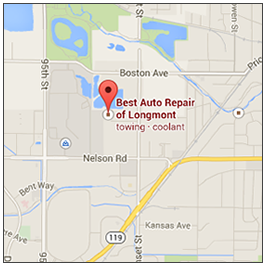A car’s engine is a complex part, and while it’s common for the engine to make some noises, certain unusual sounds can really make you take notice. If your vehicle’s engine is making noises that seem out of the norm, it’s a good indication that your car is trying to tell you something. Decoding the different sounds that your engine can produce and understanding what they could mean can help you better determine what measures should be taken to resolve the issue.
Common Engine Noises and What They Could Mean
Pinging or Knocking: Typically heard when accelerating, a pinging noise in your engine could indicate premature ignition as a result of air/fuel mixture in the engine’s cylinder. There are several reasons why premature ignition can occur, and some of them include EGR valve malfunction, overheating engine, issues with the knock sensor or computer, wrong octane, and incorrect ignition timing. Regardless of reason, any of these can result in damaged valves, connecting rods, and pistons, so it’s best to have this issue addressed by a certified auto mechanic to avoid costly engine damage.
Humming or Whirring: The most common reasons for a whirring or humming noise are low power steering fluid, a faulty AC compressor, issues with the water pump, alternator, or power steering pump. Get this noise checked out to minimize potential damage and expense.
Hissing: While not all hissing sounds indicate a problem in your car’s engine, hissing accompanied by the release of steam or leaks is a sign that the engine is overheating and needs attention ASAP. If overheating is not the issue, the hissing could be the result of a clogged catalytic converter or compromised exhaust system. In any case, don’t let either of these issues go unchecked.
Rattling: An engine with a timing chain can have a normal rattling sound during a cold start, but as the timing chain wears, the rattling will increase and warrants a proper diagnosis by a reputable auto mechanic who can determine whether the timing chain needs replaced. Not doing so can cause extensive damage to the engine if the timing chain fails.
Squealing: Squealing sounds coming from the engine are an indication that the power steering and AC system belts are slipping on the pulley. An auto technician will be able to determine if he/she can adjust the belts, or if they need to be replaced. When brake pads start to wear, this can also cause a squealing sound, which typically occurs when applying the brakes. There are other reasons your car might squeal, such as issues in the steering or suspension, so your best bet is to have your vehicle checked out by reputable auto repair shop.
Clicking: If your vehicle is making a clicking sound when you try to start it, but it won’t start, this indicates a dead battery or a loose connection in the wiring to the starter.
Tapping or Ticking: The need for an oil change, low oil levels, or a faulty oil pump can cause your engine to make a tapping or ticking sound. Check oil levels and/or get an oil change. If the ticking persists, the oil pump may need replacing.
Any noises coming from your car’s engine, especially those that are sudden or have increased, should be taken seriously and the best way to address the issue is to take your vehicle to an auto repair shop for a proper diagnosis.
Best Auto Longmont provides customers in Longmont and the surrounding areas with affordable auto maintenance and repair services that you can trust. The ASE certified auto technicians at Best Auto are experienced in servicing any make or model of vehicle. With comprehensive inspections, sound recommendations, quality auto repairs, and 15 years of industry experience, you can rest assured your car will be in good hands with the professional team at Best Auto Longmont.
If your vehicle’s engine is making noise and you need help fixing it, why wait? Bring your car to Best Auto Longmont or call and schedule your service appointment today!


 720.652.7272
720.652.7272

